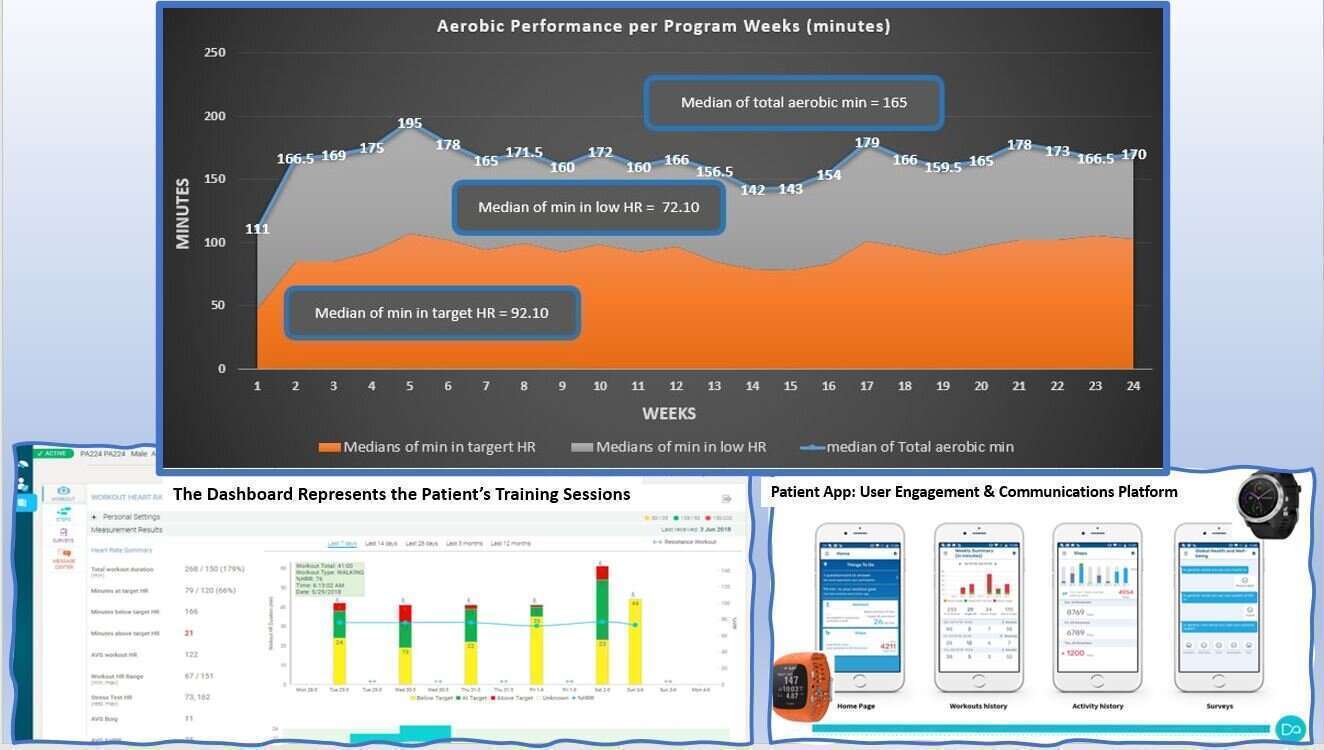
Israel`s first national remote cardiac rehabilitation program - patient response and potential factors affecting successful completion
2Sackler Faculty of Medicine, Tel Aviv University, Israel
Introduction: Cardiac rehabilitation is an essential program for the reduction of future cardiac events and improves quality of life. However, many vulnerable individuals do not achieve this desired outcome due to the restrictive nature of institution-based rehabilitation. With this in mind, the Remote Cardiac Rehabilitation Program (RCRP) was developed at Sheba Medical Center. Our aim was to create the optimal conditions so that our patients are guided and stimulated in order to successfully complete the program.
Material and method: This study involved 300 patients with established CHD who underwent a six-month RCRP. RCRP involves regular exercise, monitored by a smart sports watch and transferred to both the medical operations center as well as the mobile application on the patient’s smartphone.
Results and discussion: The median minutes per week that patients performed aerobic exercise was 164, a median of 92 minutes at target HR (established by exercise physiologist), and the median percent of heart rate reserve was 76 % across exercise training. The median number of aerobic sessions per week was 4, while the median daily steps was 8,370. Values had no significant differences across the 24 weeks. Following the 24-weeks of intervention, there was a significant improvement in exercise capacity, assessed by estimated METS using pre and post-exercise stress tests from 9.95±2.57 to 11.71±3.43 (p<0.001) (Table 1). The most significant predictors of program adherence were age and the number of weekly aerobic minutes in the first weeks of training.
Conclusion: Adherence and the performance achieved by patients in the RCRP is well within guideline recommendations, leading to a significant improvement in exercise capacity. Older age, as well as early program adherence, were significant factors which led to better program completion.


Powered by Eventact EMS